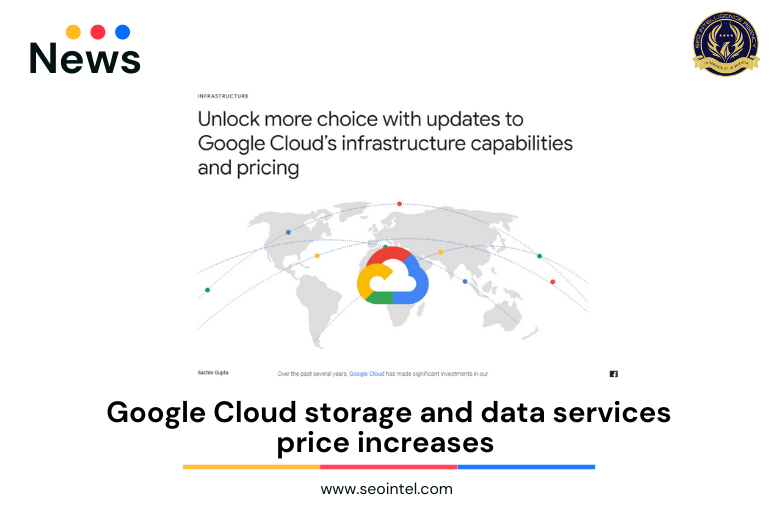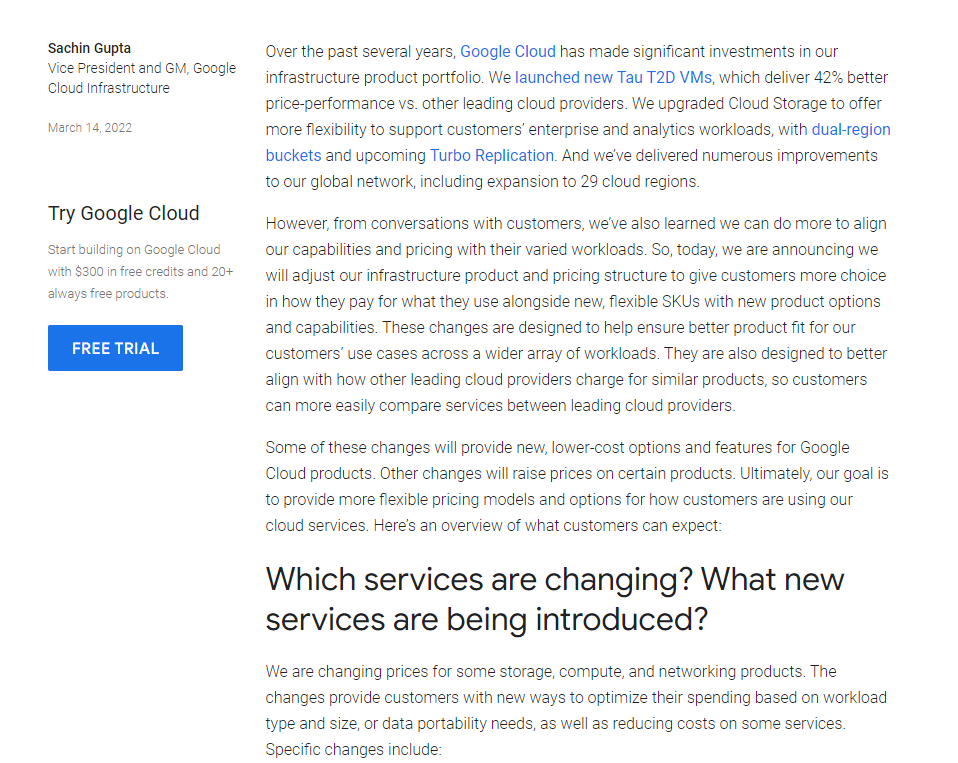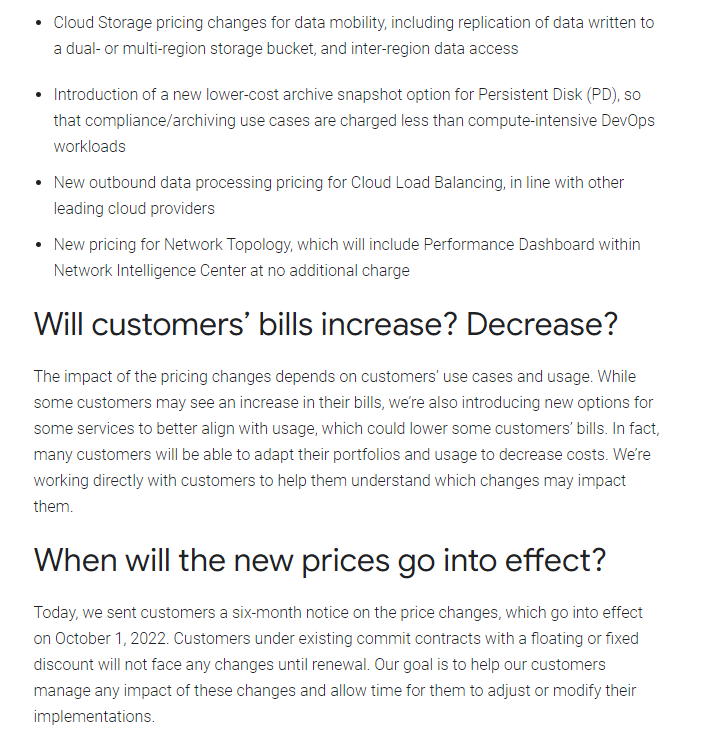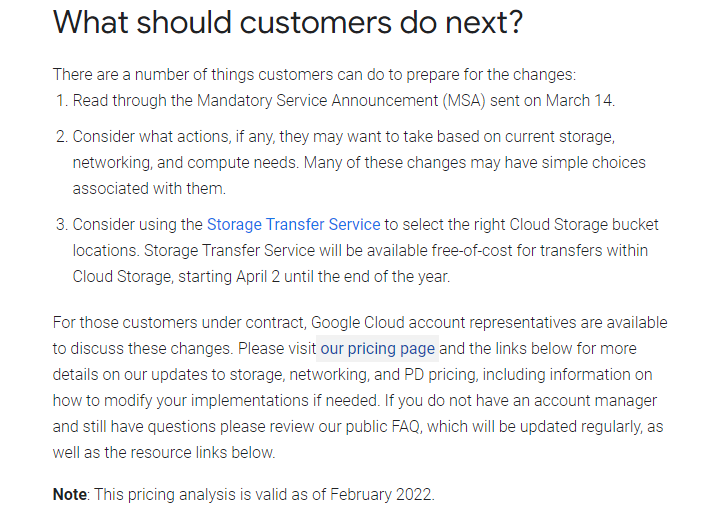
The free services of data replication and network topology enjoyed by Google Cloud’s customers will be charged soon.

Customers have been notified that starting October 1, Google Cloud would raise the cost for some of its infrastructure products.

According to Google Cloud Infrastructure VP and GM Sachin Gupta, the adjustment is due to the company’s recent cloud infrastructure expenditures.
Gupta mentioned that it has been designed to better align with how other prominent cloud providers charge for similar goods.
The pay varies on customers for what they use, as well as new, flexible SKUs with new product possibilities and capabilities as he indicated.
Fees for data replication will be introduced, as well as network egress fees for reading data from a Google Cloud service on the same continent into a cloud storage bucket situated in a multi-region.
In addition, a new fee of $0.0011 per resource hour will be implemented for its network topology service, which will include Network Intelligence Center’s performance dashboard at no extra cost. When Google first released this tool, it was a completely free service.
Customers who use Google’s load balancing product will be charged $0.008 to $0.012 per GB for outbound traffic data processing, depending on location, in order to preserve consistency and alignment with the variable prices of the services across our Cloud Load Balancing portfolio. Fees were previously exclusively applied to cloud load balancing for data processing of inbound traffic.
However, not all price increases are equal. In the Nam4 and Eur4 dual areas, prices for both cold line and archive storage services will drop. The cost of archive storage in the Asia1 dual region will also fall.
Customers with existing contracts with a variable or fixed discount were also guaranteed that the price adjustments would not affect them until they renewed their contracts.
Furthermore, Gupta recommended that consumers should use the storage transfer service to choose the best cloud storage bucket locations, noting that the service will be free within cloud storage from April 2 through the end of the year.
